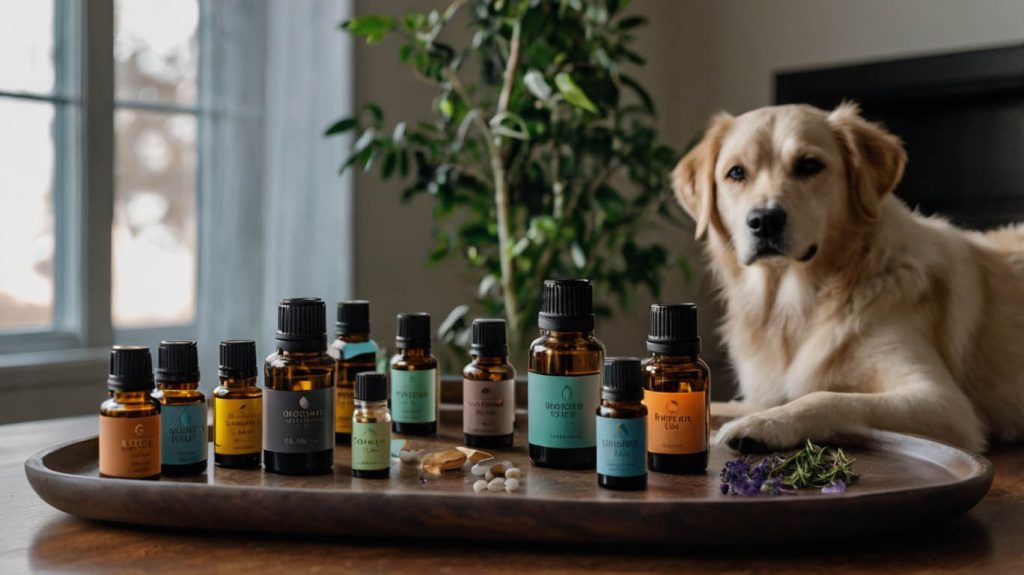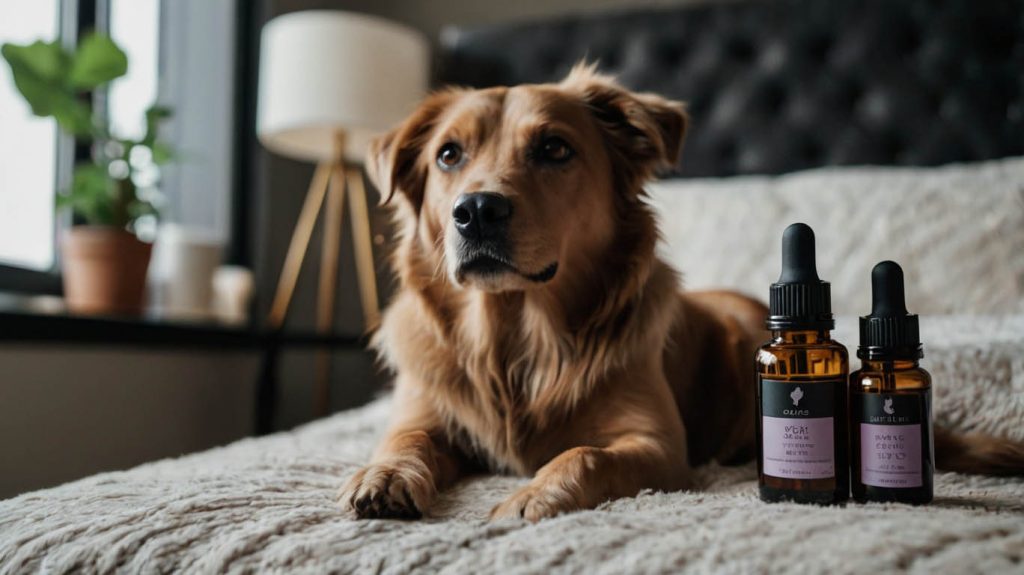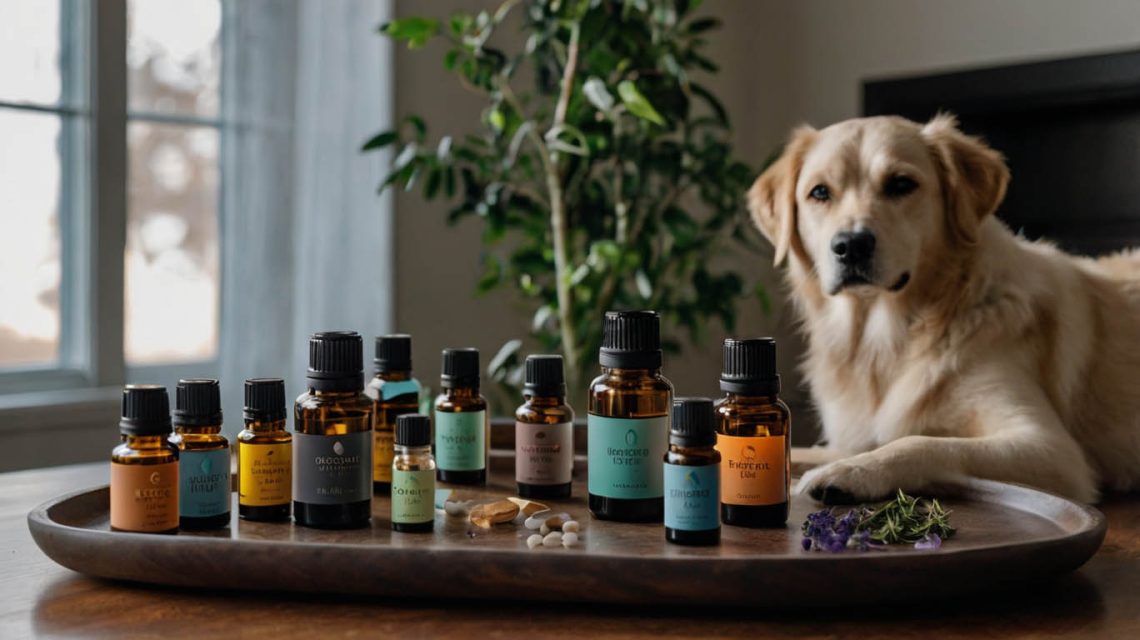Are Essential Oils in a Diffuser Safe for Dogs? The Ultimate Guide
Chloe had just brought home Sam, a sweet, fluffy rescue with a heart of gold. To create a welcoming, serene environment, Chloe set up her favorite essential oil diffuser with a “purifying” blend she loved. She watched as Sam curled up on the rug, seemingly content. A few hours later, however, she noticed Sam was sneezing and pawing at his face. He seemed agitated. A wave of panic washed over her as she realized the only new thing in the room was the diffuser. This led her to a frantic, late-night search, starting with one vital question: are essential oils in a diffuser safe for dogs?
Chloe’s story is a frighteningly common one. As we embrace natural wellness in our own lives, many of us assume these benefits will extend to our pets. However, the world of essential oils is a minefield of misinformation, and what is safe for us can be dangerous for our canine companions.
Consequently, this definitive guide is here to provide the clear, vet-reviewed information you need. We will break down the science, provide a clear list of toxic and safer oils, and offer a non-negotiable safety checklist. Therefore, you can move from a state of fear to one of empowered, confident pet ownership.
The Critical Answer: Are Essential Oils in a Diffuser Safe for Dogs?
Let’s address the central concern immediately. The answer is not a simple yes or no. The most accurate and responsible answer is: essential oils in a diffuser are often NOT safe for dogs, and their use requires extreme caution and knowledge.
Their safety is entirely conditional and depends on three critical factors:
- The Specific Oil Used: Some are known poisons for dogs.
- The Concentration and Duration: How much oil you use and for how long.
- Your Dog’s Individual Health: Size, breed, and pre-existing conditions matter.
A dog’s body is not a small human’s. Their sense of smell is up to 100,000 times more powerful, and their liver lacks certain enzymes to metabolize many of the compounds found in essential oils. Overlooking these biological facts is how a well-intentioned action can turn into a harmful one. Thus, answering “are essential oils in a diffuser safe for dogs” begins with understanding the risks.

The Science: Why Diffused Essential Oils Can Be Harmful
When you run a diffuser, it disperses a fine mist of microscopic oil droplets into the air. These potent particles can affect your dog in two major ways.
Inhalation Risks to a Dog’s Sensitive System
The aromatic oil particles can easily be inhaled deep into your dog’s respiratory tract, causing inflammation, irritation, and distress. The scent that you find pleasant can be an overwhelming, stressful assault on their powerful nose. This risk is especially high for:
- Brachycephalic (flat-faced) breeds: Pugs, Bulldogs, and Boxers already have compromised airways.
- Dogs with asthma or bronchitis: The oil particles can trigger a severe coughing fit or asthma attack.
- Puppies and senior dogs: Their respiratory systems are more delicate.
Toxicity from Ingestion and Skin Contact
The oil droplets from the diffuser settle on every surface in the room—including your dog’s fur, bedding, and water bowl. When your dog grooms itself or drinks its water, it ingests these oils. This is where severe harm can occur. Because a dog’s liver cannot properly metabolize the phenols and other compounds in many oils, the toxins can build up, leading to liver damage and neurological symptoms.
The “Do Not Diffuse” List: Essential Oils UNSAFE for Dogs
This is the most important list for any dog owner. The following common essential oils are known to be toxic and should NEVER be used in a diffuser in a home with dogs.
The Most Dangerous Essential Oils Unsafe for Dogs in a Diffuser
- Tea Tree (Melaleuca): Extremely toxic. Can cause stumbling, weakness, and tremors.
- Pine Oil: Can cause vomiting and damage to the central nervous system.
- Wintergreen & Birch: Contain toxic aspirin-like compounds that can cause organ failure.
- Cinnamon & Clove: Potent irritants that can damage the liver and airways.
- Pennyroyal: A known and severe liver toxin.
- Eucalyptus: Can cause nervous system depression and excessive drooling.
- Ylang Ylang, Anise, Thyme, Juniper: The list of unsafe oils is much longer than the list of “safer” ones. When in doubt, assume it’s unsafe.

Are Any Essential Oils in a Diffuser Safe for Dogs? A Very Cautious “Yes”
While the risks are significant, some holistic vets and cautious owners find a middle ground by following extremely strict safety rules with a very limited list of oils.
A Short List of “Safer” Oils for Careful Diffusion
If you are going to diffuse, you should only ever consider these oils, and only after consulting your veterinarian.
- Lavender (Lavandula angustifolia): Known for its calming properties.
- Chamomile: Gentle and soothing.
- Frankincense: Earthy and grounding.
- Cedarwood (Juniperus ashei ONLY): A pet-safe variety with a calming, woodsy scent.
Even with these oils, safety is not guaranteed; it is conditional on following the rules.
The Golden Rules for Safely Using a Diffuser Around Dogs
If, after a vet consultation, you decide to proceed, you must follow these rules without exception. This is the only way to ensure essential oils in a diffuser are safe for dogs in your home.
- Rule #1: Your Vet is Your First and Most Important Call. Discuss the specific oils you want to use with your veterinarian before you use them. They know your dog’s unique health profile.
- Rule #2: Extreme Dilution is Mandatory. Use far fewer drops than recommended for humans. 1-2 drops total in a standard 100-200ml water-based diffuser is the absolute maximum.
- Rule #3: Provide an Escape Route. This is critical. Your dog must have a clear and easy way to leave the room and go to another part of the house where the air is fresh. Never run a diffuser in a small, enclosed room where your dog is trapped.
- Rule #4: Diffuse for Short Periods Only. Do not run your diffuser continuously. Limit sessions to 20-30 minutes, then turn it off and allow the air to clear for several hours.
- Rule #5: Observe Your Dog’s Body Language. Pay close attention. If your dog is sneezing, coughing, drooling, seems agitated, or leaves the room, it’s a clear signal that the scent is bothering them. Stop immediately.
Warning Signs of Essential Oil Poisoning from a Diffuser
Recognizing the signs of poisoning is crucial for a rapid response. If you see any of these signs, it is a medical emergency.
- Drooling or excessive salivation
- Pawing at the face or mouth
- Vomiting or diarrhea
- Lethargy, weakness, or depression
- Stumbling, wobbliness, or difficulty walking (ataxia)
- Coughing, wheezing, or difficulty breathing
- Muscle tremors or seizures
A Case Study Resolved: How Chloe Found a Safe Solution for Sam
Let’s return to Chloe and Sam. After her frightening experience, she turned off the diffuser and called her veterinarian. The vet explained the risks of her “purifying” blend, which likely contained unsafe oils. They discussed a safer path forward.
Following her vet’s advice, Chloe now only occasionally diffuses 1-2 drops of high-quality lavender oil for 20 minutes in her large, open-plan living room, always leaving the bedroom door wide open for Sam. She watches him closely, and he is no longer showing any signs of distress. She learned that the answer to “are essential oils in a diffuser safe for dogs” lies in educated, responsible, and extremely cautious use.
The Final Verdict: Prioritize Your Pet’s Safety Above All Else
While the idea of a naturally scented home is appealing, the potential for it to be harmful to our beloved dogs is significant and real. Their health and safety depend on breathing clean, unadulterated air. The risks associated with diffusing essential oils often far outweigh any potential benefits.
Your dog’s well-being should always be your number one priority. We strongly urge you to speak with your veterinarian before using any diffuser or essential oil product in your home. They can recommend truly pet-safe alternatives for freshening your home. Share this guide to help other loving dog owners make safe, informed choices.


